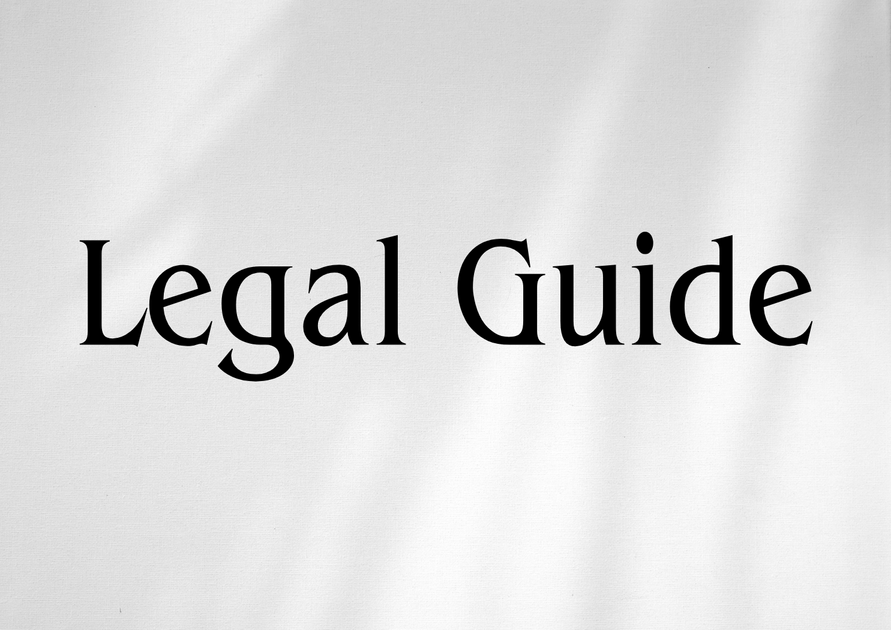Introduction
The economic transformation underway in the Kingdom of Saudi Arabia has captured global attention, propelled by sweeping regulatory reforms and robust incentives for foreign investment. At the heart of these efforts lies the Ministry of Investment of Saudi Arabia (MISA), formerly known as the Saudi Arabian General Investment Authority (SAGIA). For UAE-based enterprises, legal advisors, HR managers, and C-level executives, grasping the mechanics of MISA’s licensing and regulatory framework is now essential for regional business expansion and cross-border compliance. With both Saudi and UAE markets rapidly adapting to global business realities—and with a growing emphasis on foreign investor protections, legal harmonisation, and regulatory clarity—understanding MISA’s evolving mandate has never been more relevant.
Recent UAE law updates, such as Federal Decree-Law No. 26 of 2020 on foreign direct investment and various Cabinet Resolutions aligning cross-border regulatory practices, have further heightened the importance of staying compliant while seizing new market opportunities. This article provides a deeply analytical, consultancy-grade exploration of MISA’s licensing and regulation systems, offering actionable insights and risk mitigation strategies for UAE businesses considering operations or partnerships in Saudi Arabia.
Table of Contents
- Overview of MISA and Investment Licensing
- Legal Framework Governing Foreign Investment
- MISA Licensing: Step-by-Step Process
- Key Regulatory Provisions and Compliance Obligations
- Comparing Old and New Investment Regulations
- Practical Consultancy Insights for UAE Businesses
- Risks of Non-Compliance and Mitigation Strategies
- Case Studies and Hypothetical Scenarios
- Conclusion and Forward-Looking Best Practices
Overview of MISA and Investment Licensing
The Role and Mandate of MISA
Formerly SAGIA, the Ministry of Investment of Saudi Arabia (MISA) functions as the principal government authority facilitating, licensing, and regulating foreign direct investment (FDI) into the Kingdom. Tasked with driving Vision 2030’s goals, MISA’s mission is to streamline the process for foreign investors, enhance transparency, and foster an environment where international business can thrive alongside national enterprise.
Why MISA Matters for UAE Businesses
Geographical proximity, GCC trade relations, and growing economic interdependence make Saudi Arabia a natural destination for UAE investors. Robust MISA frameworks promise market access, repatriation of profits, and attractive tax or land incentives—provided investors navigate the compliance maze with precision.
Legal Framework Governing Foreign Investment
Foundational Legislation and Recent Developments
The cornerstone of foreign investment regulation in Saudi Arabia is the Foreign Investment Law (Royal Decree No. M/1 dated 5/1/1421H), which establishes foreign investors’ rights and obligations. MISA, as the regulatory authority, issues implementing bylaws, sector-specific regulations, and the Unified Investment License. Meanwhile, significant UAE legal developments–such as Federal Decree-Law No. 26 of 2020 and recent Cabinet Resolutions on investor rights–have enhanced comparability, facilitating smoother UAE-KSA business journeys.
Key Regulatory Instruments
- Foreign Investment Law of Saudi Arabia, 2000 (amended 2014): Defines eligible sectors, investor rights, and licensing conditions.
- Implementing Regulations (2018): Addresses practical licensing terms, minimum capital, governance, and reporting.
- Vision 2030 Reform Decrees (2016-2023): Introduced new target sectors, streamlined approvals, and tax incentives.
Regional Harmonization and UAE Law 2025 Updates
Recent UAE policy shifts, notably those aligned with Vision 2030, have influenced Saudi reforms on investment law, dispute resolution, and cross-border compliance. Joint commissions ensure congruence, particularly regarding permitted activities, ownership thresholds, and employment requirements.
MISA Licensing: Step-by-Step Process
Eligibility and Pre-Licensing Requirements
Foreign investors seeking MISA licenses must demonstrate:
- Eligibility under permitted sectors (negative list restrictions apply).
- Clean legal and financial records.
- Minimum capital per sector or activity.
- Comprehensive feasibility study for certain regulated sectors.
Licensing Stages and Timeframes
| Stage | Process | Timeframe (avg.) | Responsible Entity |
|---|---|---|---|
| Pre-application consultation | MISA reviews preliminary documents and investment plan | 2-3 days | MISA Investor Services |
| Online application submission | Submission of business license application with supporting documentation | 1 week | MISA Licensing Department |
| Due diligence/Review | Legal, technical, and security reviews | 2-3 weeks | MISA/Other ministries |
| Decision issuance | Approval or rejection communicated; license issued if successful | 1-2 days | MISA |
Required Documentation Checklist
- Valid commercial registration and Articles of Association (attested by the UAE Ministry of Justice/Chamber of Commerce).
- Board resolution approving KSA market entry.
- Power of attorney for authorised representative.
- Identity documents and, where applicable, sector-specific approvals.
Key Regulatory Provisions and Compliance Obligations
Permitted and Restricted Sectors
MISA maintains a Positive List (open for FDI) and a Negative List (restricted or prohibited activities, such as oil exploration, military manufacturing, and security-related sectors). UAE and GCC entities may benefit from preferential treatment in certain sectors, subject to rules of origin and ownership percentage ceilings.
Equity Participation and Capital Mandates
Unlike prior restrictions, most sectors now permit up to 100% foreign ownership, subject to MISA approval. Some activities, such as advanced manufacturing or healthcare, may require higher capital infusions or technical partnership disclosures.
Ongoing Compliance and Reporting
Licensed foreign businesses must:
- Maintain timely commercial registry and license renewals.
- Submit audited accounts to MISA annually.
- Report material changes (ownership, activities, address) within 30 days.
- Comply with labour Saudization quotas (Nitaqat) and environmental health regulations.
Comparing Old and New Investment Regulations
Key Changes at a Glance
| Aspect | Old Regime (Pre-2018) | New Regime (2018-Present) |
|---|---|---|
| Ownership Caps | Usually 49% max, with select sector exceptions | Up to 100% foreign ownership in most sectors |
| Sector Access | Many sectors closed to FDI | Expansive Positive List; narrower Negative List |
| Licensing Timeline | 4-6 weeks average | Typically 1-3 weeks (digitalisation) |
| Tax Incentives | Limited and sector-based | Wider exemptions (economic cities, R&D, green tech) |
| Dispute Resolution | Ministry-affiliated courts | Access to international arbitration and independent panels |
Visual Aid Suggestion
Insert a flow diagram here tracing each key step in the MISA licensing process, from eligibility check through to license issuance, with compliance milestones marked.
Practical Consultancy Insights for UAE Businesses
Navigating Cross-Border Investment Regulations
- Legal Structuring: UAE entities should assess whether to pursue branch, LLC, or joint venture models based on sector, tax efficiency, and repatriation requirements. Seek legal opinions referencing Federal Decree-Law No. 26 of 2020.
- Pre-Investment Due Diligence: Engage in comprehensive background checks to uncover sector-specific hurdles—particularly Saudization quotas and local content mandates.
- Regulatory Approvals: For certain activities (e.g., healthcare, education), dual approvals may be required from both MISA and the relevant Saudi ministerial regulators. Early legal coordination is essential.
- MISA E-Services: Leverage digital platforms for application tracking, complaints, and renewals—maximizing transparency and speed.
Common Pitfalls and How to Avoid Them
- Neglecting to update registry information or renew licenses on time can lead to penalties or even license revocation.
- Insufficient documentation, especially legalisations and translations, may cause costly delays.
- Failure to comply with Saudization/corporate governance mandates results in fines and operational disruptions.
Risks of Non-Compliance and Mitigation Strategies
Legal and Financial Penalties
| Non-Compliance | Potential Penalty | Legal Reference |
|---|---|---|
| Operating without valid license | License suspension, fines up to SAR 500,000 | Foreign Investment Law, Art. 17 |
| Failure to meet Saudization targets | Work visa restrictions, fines, possible license cancellation | Ministry of Human Resources, Nitaqat Regulation |
| Omitting annual reports | Administrative fines, reputational damage | MISA Implementing Regulations |
Compliance Checklist for UAE Businesses
- Secure required sectoral and local authorisations before market entry.
- Schedule automated reminders for renewal deadlines.
- Train compliance officers on MISA’s evolving electronic portal systems.
- Document internal controls for Saudization, tax reporting, and local content.
Visual Aid Suggestion
Place a compliance checklist visual or infographic here to guide businesses through required steps and timelines.
Case Studies and Hypothetical Scenarios
Case Study 1: Retail Sector Expansion
Background: A leading UAE retail chain sought to establish 10 new outlets across Riyadh and Jeddah. After pre-applying through MISA’s digital portal and preparing attested documents, they encountered delays due to incomplete Saudization workforce planning. Addressing local employment quotas pre-application, and working in tandem with a local legal advisor, expedited approval within three weeks.
Case Study 2: Technology Services Entry
Background: A UAE-based tech startup was approved for 100% foreign ownership under Vision 2030’s Positive List, provided that a Saudi partner was engaged for cybersecurity compliance. By securing technical partnership MOUs, the company met compliance requirements, gaining fast-track license issuance and tax incentives.
Hypothetical: Regulatory Breach Consequences
Scenario: A Dubai-headquartered healthcare firm fails to file auditable annual statements. Under MISA’s framework, this triggers an SAR 200,000 penalty and the flagging of renewal requests, resulting in operational suspension and reputational harm.
Conclusion and Forward-Looking Best Practices
The MISA licensing and regulatory framework is a cornerstone of Saudi Arabia’s ambitious bid for global investment prominence. For UAE enterprises, the confluence of recent legal harmonisation, competitive incentives, and regulatory rigour presents both opportunities and challenges. It is critical for UAE businesses and investors to:
- Remain up-to-date with both Saudi and UAE legal reforms (for example, UAE Federal Decree-Law No. 26 of 2020)
- Partner with qualified legal consultants who monitor and implement compliance best practices on both sides of the GCC border
- Adopt technology and automate compliance tracking for license renewals, reporting, and workforce requirements
- Proactively engage with MISA for sector-specific clarifications and early issue resolution
Looking ahead, Saudi Arabia’s drive for legal transparency, digitalisation, and market liberalisation will continue to set new precedents for foreign investors. UAE businesses that demonstrate diligence, adaptability, and a proactive compliance posture will not only unlock scale in the Saudi market but also establish themselves as GCC market leaders in the evolving regulatory landscape.




